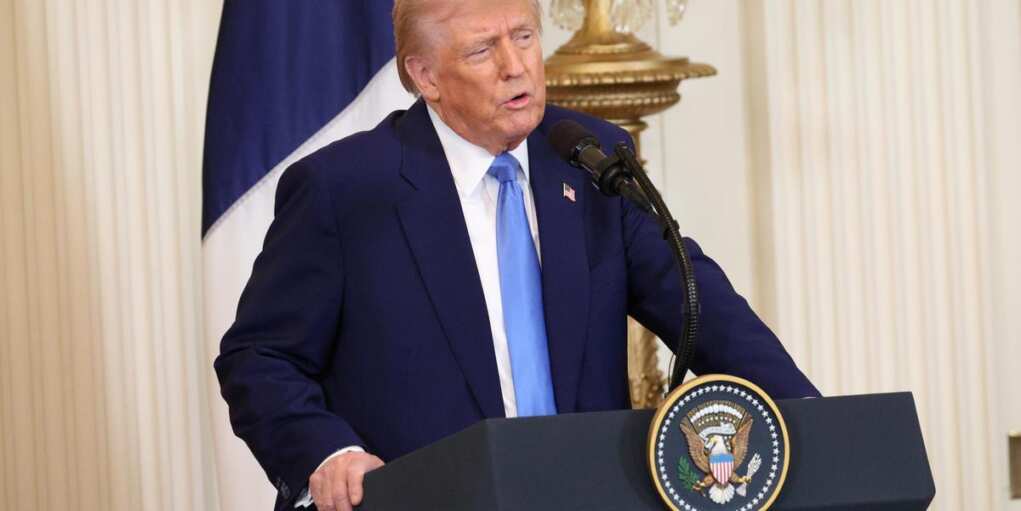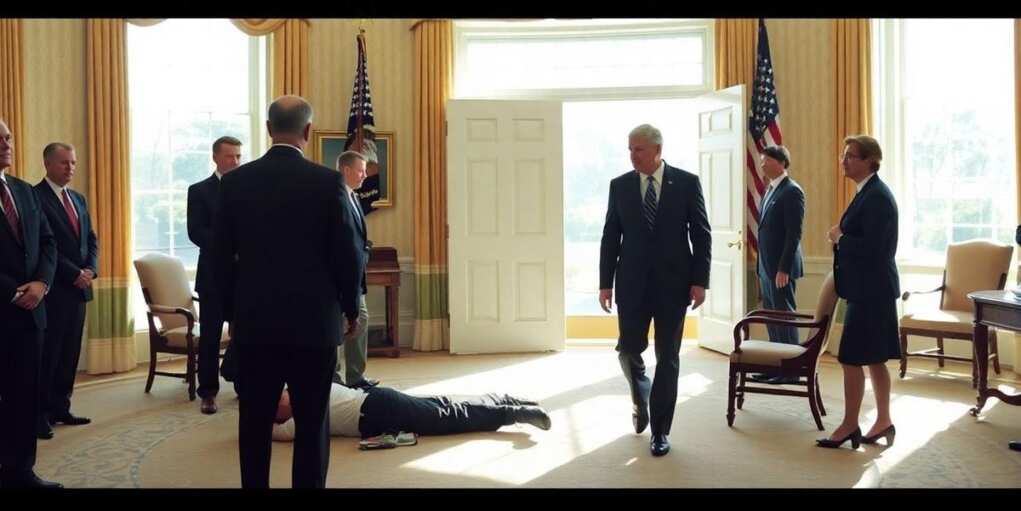Trump Hints At A New Era Of Tax Freedom
Joshua SukoffPresident Trump on Tuesday ignited excitement amongst taxpaying Americans by boldly predicting they could soon bid farewell to income taxes entirely. While incredibly ambitious the president’s plan would usher in a world of tax freedom for hardworking families. Can he do it though. Trump sure thinks so. Speaking to reporters the president teased the White […]
Macaulay Culkin Reveals Secret Plot For Another “Home Alone”
Ksenia ShestakovaBeloved former child star Macaulay Culkin revealed he has an elevator pitch idea about another possible Home Alone movie. Culkin is currently making the rounds on his A Nostalgic Night with Macaulay Culkin tour and revealed during a recent stop that unlike Home Alone director Chris Columbus he is not opposed to doing a sequel […]
Trump: “This Will Destroy Our Constitution”
Joey SussmanPresident Donald Trump responded to comments by former Attorney General Eric Holder saying that Democrats are pursuing a Supreme Court expansion plan that could severely harm the Constitution. In a post on Truth Social Trump reacted to a recent appearance by Eric Holder in which he floated the possibility of expanding the Supreme Court if […]
DHS Exposes Biden — He Brought In Thousands Of Dangerous People
Andrew LeydenThe Department of Homeland Security flagged more than 5,000 Afghan migrants for national security concerns after they entered the United States through President Biden’s Operation Allies Welcome. DHS uncovered potential derogatory information on 6,868 individuals who arrived following the 2021 military withdrawal according to the New York Post citing official documents. Of those 5,005 raised […]
NYTimes Sympathizes With Criminal Illegal — Gets Instant Online Backlash
PeopleImagesAs the debate over immigration continues the New York Times tried to put a sympathetic light on an illegal alien who committed identity theft and instead radicalized many on the right. The article contrasts the lives of Romeo Perez-Bravo from Guatemala and Dan Kluver the man whose identification records were stolen to secure employment for […]
Chris Matthews Panics Over Trump’s New Peace Plan
Joseph SohmFormer MSNBC host Chris Matthews expressed outrage on Monday over President Donald Trump’s Russia-Ukraine peace deal restricting NATO troops in Ukraine. The draft agreement includes that NATO agrees not to station troops in Ukraine according to Sky News. Matthews raised concerns on MSNBC’s Morning Joe that the provision would bar U.S. troops from fighting Russia […]
Antifa Still Running Wild, Conservatives Demand Action
pmvfotoAntifa radicals have been causing chaos throughout America for years and have finally been designated as a terrorist network by the Trump administration. However, they are still getting away with crimes. BlazeTV host Christopher Rufo described a recent incident that has conservatives demanding real action beyond just words. “Antifa radicals in Berkeley, California, disrupted a […]
Doctors Find The Key To Killing Cancer
murat photographerMedical experts are increasingly pointing to diet as a critical factor in fighting cancer and other serious illnesses. Dr. Mark Hyman recently hosted Dr. Jason Fung on his podcast to discuss how periods of not eating might help patients battling cancer. Fung is a Canadian doctor, author and researcher who specializes in this area. Fung […]
Another Anti-White Democrat? They’ve Gone TOO Far This Time
Krakenimages.comDemocratic New York City Council Member Julie Won expressed frustration this week over white women benefiting from the Minority and Women-owned Business Enterprise Certification Program. The program assists minorities and women entrepreneurs access government contracts and expand their business according to the city government’s website. Won pressed First Deputy Chief Business Diversity Officer Dwight Flynn […]
Democrats Ask Military Personnel To Do The Unthinkable
DC StudioA group of Democratic lawmakers who once served in the military or intelligence agencies just put out a video with a message that has raised serious concerns about encouraging insubordination in the armed forces. Senator Elissa Slotkin posted the video on social media this week. It features her along with Senator Mark Kelly of Arizona […]
Liberal News Declares War On White Babies
Leka SergeevaAmerica is facing a historic fertility slump. Into that debate stepped the Economist with a November 6 feature titled “Make America procreate again: Among the MAGA fertility fanatics.” The article by Barclay Bram framed pro-natal advocates as “tech bros and religious conservatives.” It highlighted a movement that urges having more children amid a collapsing birth […]
FBI Announces A New “Deal” With China To Save American Lives
FBI Director Kash Patel announced a new agreement with China aimed at squeezing off the flow of fentanyl into the United States. He said the plan focuses on the chemicals needed to make the drug, not just the shipments at the border. He explained that stopping production upstream reduces what can ever reach our streets. […]
RFK Jr. Makes Historic Women’s Health Announcement
Maxim ElramsisyHealth and Human Services Secretary Robert F. Kennedy Jr. announced that the Food and Drug Administration will remove the “black box warning” from hormone replacement therapy products used to treat menopausal women. The decision marks a historic shift in federal policy that could impact millions of women across the country who rely on HRT for […]
President Trump To “Sue For $1 Billion Dollars”
Joey Sussman / Shutterstock.comPresident Donald Trump has given the British Broadcasting Corporation a final deadline to retract what his legal team calls a “false, defamatory, disparaging, and inflammatory” broadcast—or face a $1 billion lawsuit. The warning came after evidence surfaced that the BBC aired a fabricated version of one of Trump’s speeches in a documentary seen by millions. […]
Medical Emergency At White House — RFK Jr.’s Response Stirs Controversy
A White House event meant to announce a major new pharmaceutical deal took a sudden and alarming turn when a guest collapsed in the middle of the Oval Office. The medical emergency interrupted a live announcement involving two large drug companies and their new pricing agreements with the Trump administration. The man who collapsed was […]
Most Popular
Most Popular















